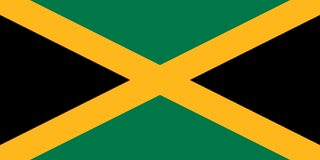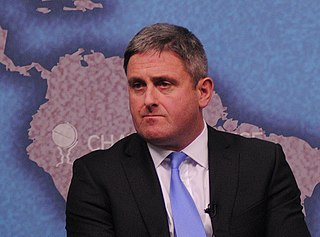
In law, fraud is intentional deception to secure unfair or unlawful gain, or to deprive a victim of a legal right. Fraud can violate civil law or criminal law, or it may cause no loss of money, property, or legal right but still be an element of another civil or criminal wrong. The purpose of fraud may be monetary gain or other benefits, for example by obtaining a passport, travel document, or driver's license, or mortgage fraud, where the perpetrator may attempt to qualify for a mortgage by way of false statements.

Identity theft, identity piracy or identity infringement occurs when someone uses another's personal identifying information, like their name, identifying number, or credit card number, without their permission, to commit fraud or other crimes. The term identity theft was coined in 1964. Since that time, the definition of identity theft has been legally defined throughout both the U.K. and the U.S. as the theft of personally identifiable information. Identity theft deliberately uses someone else's identity as a method to gain financial advantages or obtain credit and other benefits. The person whose identity has been stolen may suffer adverse consequences, especially if they are falsely held responsible for the perpetrator's actions. Personally identifiable information generally includes a person's name, date of birth, social security number, driver's license number, bank account or credit card numbers, PINs, electronic signatures, fingerprints, passwords, or any other information that can be used to access a person's financial resources.

Cybercrime is a type of crime involving a computer or a computer network. The computer may have been used in committing the crime, or it may be the target. Cybercrime may harm someone's security or finances.

Dame Vera Baird is a British barrister and politician who has held roles as a government minister, police and crime commissioner, and Victims' Commissioner for England and Wales.

The Serious Fraud Office (SFO) is a non-ministerial government department of the Government of the United Kingdom that investigates and prosecutes serious or complex fraud and corruption in England, Wales and Northern Ireland. The SFO is accountable to the Attorney General for England and Wales, and was established by the Criminal Justice Act 1987, an Act of the Parliament of the United Kingdom.

The Serious Organised Crime Agency (SOCA) was a non-departmental public body of the Government of the United Kingdom which existed from 1 April 2006 until 7 October 2013. SOCA was a national law enforcement agency with Home Office sponsorship, established as a body corporate under Section 1 of the Serious Organised Crime and Police Act 2005. It operated within the United Kingdom and collaborated with many foreign law enforcement and intelligence agencies.

The Department for Work and Pensions (DWP) is a United Kingdom government department of His Majesty's Government responsible for welfare, pensions and child maintenance policy. As the UK's biggest public service department it administers the State Pension and a range of working age, disability and ill health benefits to around 20 million claimants and customers. It is the second largest governmental department in terms of employees, and the largest in terms of expenditure (£187bn).

The Nuclear Decommissioning Authority (NDA) is a non-departmental public body of the Department for Energy Security and Net Zero formed by the Energy Act 2004. It evolved from the Coal and Nuclear Liabilities Unit of the Department of Trade and Industry. It came into existence during late 2004, and took on its main functions on 1 April 2005. Its purpose is to deliver the decommissioning and clean-up of the UK's civil nuclear legacy in a safe and cost-effective manner, and where possible to accelerate programmes of work that reduce hazard.
Securities fraud, also known as stock fraud and investment fraud, is a deceptive practice in the stock or commodities markets that induces investors to make purchase or sale decisions on the basis of false information. The setups are generally made to result in monetary gain for the deceivers, and generally result in unfair monetary losses for the investors. They are generally violating securities laws.

The Audit Commission was a statutory corporation in the United Kingdom. The commission's primary objective was to appoint auditors to a range of local public bodies in England, set the standards for auditors and oversee their work. The commission closed on 31 March 2015, with its functions being transferred to the voluntary, not-for-profit or private sector.
Identity fraud is the use by one person of another person's personal information, without authorization, to commit a crime or to deceive or defraud that other person or a third person. Most identity fraud is committed in the context of financial advantages, such as accessing a victim's credit card, bank accounts, or loan accounts. False or forged identity documents have been used in criminal activity or in dealings with government agencies, such as immigration. Today, the identities of real persons are often used in the preparation of these false documents. This can lead to bad consequences and trouble.

The National Policing Improvement Agency (NPIA) was a non-departmental public body in the United Kingdom, established to support police by providing expertise in such areas as information technology, information sharing, and recruitment.

Financial crime is crime committed against property, involving the unlawful conversion of the ownership of property to one's own personal use and benefit. Financial crimes may involve fraud ; theft; scams or confidence tricks; tax evasion; bribery; sedition; embezzlement; identity theft; money laundering; and forgery and counterfeiting, including the production of counterfeit money and consumer goods.

Water supply and sanitation in Jamaica is characterized by high levels of access to an improved water source, while access to adequate sanitation stands at only 80%. This situation affects especially the poor, including the urban poor many of which live in the country's over 595 unplanned squatter settlements in unhealthy and unsanitary environments with a high risk of waterborne disease. Despite a number of policy papers that were mainly focused on water supply and despite various projects funded by external donors, increases in access have remained limited.

The UK Border Agency (UKBA) was the border control agency of the Government of the United Kingdom and part of the Home Office that was superseded by UK Visas and Immigration, Border Force and Immigration Enforcement in April 2013. It was formed as an executive agency on 1 April 2008 by a merger of the Border and Immigration Agency (BIA), UKvisas and the detection functions of HM Revenue and Customs. The decision to create a single border control organisation was taken following a Cabinet Office report.

HBOS plc was a banking and insurance company in the United Kingdom, a wholly owned subsidiary of the Lloyds Banking Group, having been taken over in January 2009. It was the holding company for Bank of Scotland plc, which operated the Bank of Scotland and Halifax brands in the UK, as well as HBOS Australia and HBOS Insurance & Investment Group Limited, the group's insurance division.

The National Crime Agency (NCA) is a national law enforcement agency in the United Kingdom. It is the UK's lead agency against organised crime; human, weapon and drug trafficking; cybercrime; and economic crime that goes across regional and international borders; but it can be tasked to investigate any crime. The NCA has a strategic role as part of which it looks at serious crime in aggregate across the UK, especially analysing how organised criminals are operating and how they can be disrupted. To do this, it works closely with regional organised crime units (ROCUs), local police forces, and other government departments and agencies.

The National Fraud Intelligence Bureau is a police unit in the United Kingdom responsible for gathering and analysing intelligence relating to fraud and financially motivated cyber crime. The NFIB was created as part of the recommendations of the 2006 National Fraud Review, which also saw the formation of the National Fraud Authority. The NFIB was developed and is overseen by the City of London Police as part of its role as a national lead for economic crime investigation, and is funded by the Home Office.

Keith Bristow QPM served as the first Director-General of the National Crime Agency from 2011 to 2016. He was formerly the Chief Constable of Warwickshire Police, and was appointed in October 2011 to oversee the creation of the NCA and, following its launch in 2013, led the organisation in its mission to cut serious and organised crime in the UK. Between 2011 and 2013, Bristow built and designed the agency, from concept to full operational crime-fighting, working closely with the Government, global partners and participating in the UK National Security Council. He is the former Vice Chairman of Arcanum, a global strategic intelligence company and a subsidiary of Magellan Investment Holdings and currently Executive Chairman of Heligan Group.
Mass-marketing fraud is a scheme that uses mass-communication media – including telephones, the Internet, mass mailings, television, radio, and personal contact – to contact, solicit, and obtain money, funds, or other items of value from multiple victims in one or more jurisdictions. The frauds where victims part with their money by promising cash, prizes, and services and high returns on investment are part of mass market fraud.
















